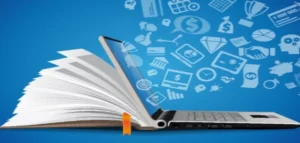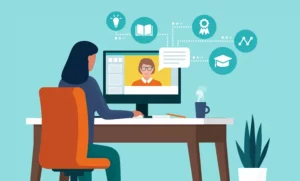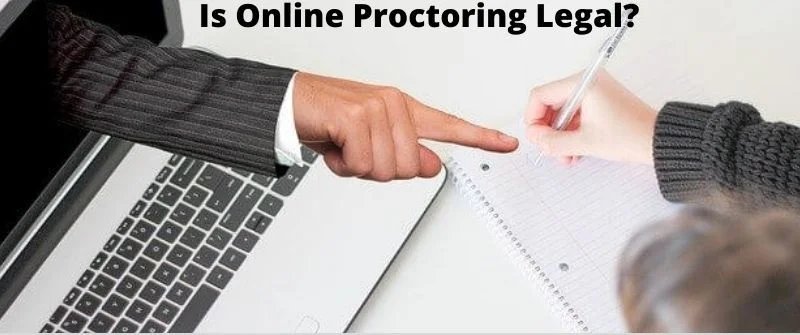Online learning is increasingly becoming popular today. With this rise, there is a need to monitor exams that are done online.
Online proctoring is a way of invigilating students when they are taking exams online. This is achievable through the use of online proctoring software. Also known as remote proctoring, this process helps to deter and prevent exam malpractices. In the process, it protects the academic integrity of a learning institution.
Is Online Proctoring Legal?
Remote invigilation of exams is legal in most countries. As long as the learning institution complies with regulations that protect the data of students, the process is legitimate.
The processing of a student’s private personal data should be limited to the use for examination purposes only. In a nutshell, the benefits of protecting the integrity of exams surpass the reasons for shielding a student’s personal information.
As learning institutions embrace technological innovations, remote monitoring of exams has become the best and reliable way to conduct assessments.
This protects the validity and integrity of these assessments as well as the institution itself. There is simply no reason to delay the academic progress of a school especially when high stake exams are involved.

As long as the personal data is used appropriately, the legal legitimacy of remote invigilation will be under no threat.
Nevertheless, the successful conduct of online examinations will need an institution to handle it with utmost transparency.
Effective change management measures ought to be put in place. The students should get complete information about data protection concerning their privacy.
There should be a detailed step-by-step guide about the entire process of online exam supervision.
Privacy Issues With Online Proctoring
The private information that schools collect when proctoring exams online has been a subject of debate for a long time.
However, the current privacy laws of different states and countries permit this collection of personal data only when necessary. This collection should also be done for a legitimate purpose.
Schools ought to do more to protect the private information of students. Even though the prime objective of protecting the integrity of exams is legitimate, online proctoring can violate the privacy of a student.
However, with the negative repercussions of academic dishonesty, there is a need to compromise the privacy of students to protect exam credibility.
One of the strongest reasons that can justify online exam proctoring is the emergence of identity fraud. This is perhaps a stronger reason than any other form of academic dishonesty.
Concerning this risk impact on online exams, the collection of data from exam takers is necessary.
All in all, there should be a risk assessment scenario to determine what warrants the use of online proctoring. The duration of the student’s video footage that needs to be retained should be discussed with all the relevant authorities.
Students need to know how long their important data will be stored in line with the academic dishonesty policy of the institution.
Therefore, it is the responsibility of learning institutions to use online proctoring strictly to manage the risks of academic dishonesty.
When handling a student’s personal information, learning institutions need to select a proctoring software company that they can entrust with the information.
There should be open contractual terms that govern and protect the security of a student’s private information. How the proctoring tool and the school use the data should be laid open.

If there are subcontractors, the student should know incidences when the private data can be disclosed to third parties.
Needless to say, there should be clear information regarding where the data will reside and the security measures that are taken to protect it.
There should also be clear information regarding the disposal of private information when the exams come to an end.
Privacy issues can be minimal when there is effective communication with students. For instance, schools need to give students a notice indicating the collection of their private data in line with the applicable privacy laws of the state.
There should be information about how the proctoring software works, what information is needed from the students, and details on any third-party involvement.
Court Cases Fronted About by Online Proctoring
1. Case by the Student Council in Amsterdam
This was a ruling on complaints about the privacy of online proctoring at the Amsterdam district court. A group of students led by their council leader forwarded a case objecting to their university’s online system of proctoring exams.
On June 11th, 2021, a district court in Amsterdam made a ruling that favored online exam proctoring.
The Court validated the legitimacy of online exams in the institution. In this case, the learning institution proved beyond doubt that it had effectively complied with the general data protection regulations (GDPR).
This came as a good reassurance for learning institutions in the Netherlands that were investing in online learning after the emergence of the Covid-19 pandemic.
In this case, the students had two major concerns about online proctoring. Firstly, they had concerns about personal privacy and how the data collected will be managed.
They wanted assurance that all the data collected during the exam session recording will not be utilized in a compromising way. Secondly, the students requested an alternative option instead of online proctoring.
In response to the students, the judge was able to address their grievances by confirming that this process can meet all the GDPR requirements.

In short, a university can process personal data and only use the information for the specific purpose of examinations.
The compliance with these regulations, therefore, proves that remote proctoring does not violate the personal privacy of a student.
2. Proctorio Company vs Erik Johnson
This is another notable case involving the privacy of data during online proctoring. Erick Johnson, a student at Miami University filed this lawsuit in 2020 against a remote learning software company called Proctorio.
The students had allegations against the company on being accused of copyright infringement. The lawsuit was filed in an American district court in Arizona by a non-profit organization on behalf of the student.
In the Case, Johnson who was pursuing a degree in computer science wanted to know how the software invigilates exams remotely.
The student started investigating the source code in the software’s browser extension. The student felt that the source code of Proctorio had tracking methods that were intrusive to the privacy of exam takers.
His refusal to remove the code is what led to a dispute with the management of Proctorio. The online proctoring company insisted that the use of these codes was only to protect the integrity of exams.
Students Score in Proctored Vs Unproctored Exams
The major challenge of online exams is maintaining academic honesty and integrity. A cursory analysis of the situation portrays a big difference in results when exams are taken in a proctored environment and when in an unmonitored environment.
There is always a difference in the learner’s grade point average (GPA), overall exam performance, and the individual mean scores.
In reality, students taking online exams in unmonitored environments are likely to record varying performance results when compared to monitored groups. The cause of these notable variations is possible cheating and exam malpractices.
Proctored online exams are likely to have lower exam grades in comparison to those that are not monitored. The significant difference in this performance is attributed to cheating.
Students who take exams without any invigilation will try to find answers elsewhere. They can have the time to indulge in different forms of cheating to get better grades.

Joseph is a freelance journalist and a part-time writer with a particular interest in the gig economy. He writes about schooling, college life, and changing trends in education. When not writing, Joseph is hiking or playing chess.
